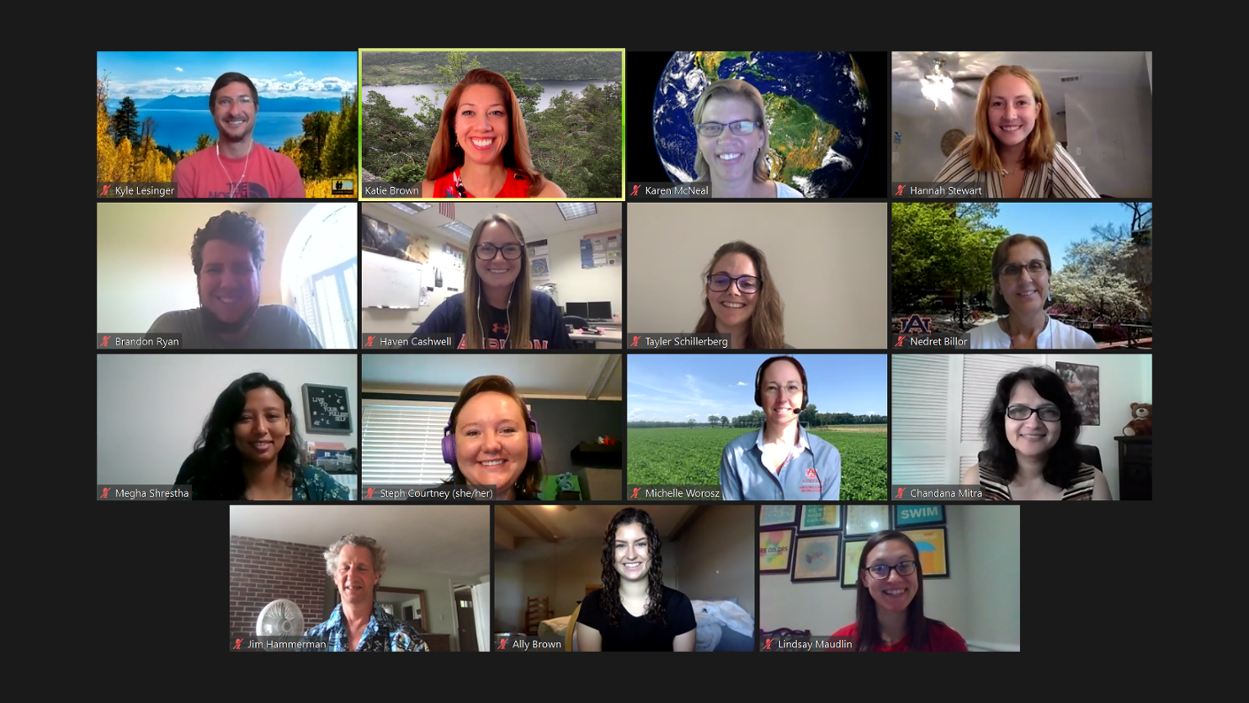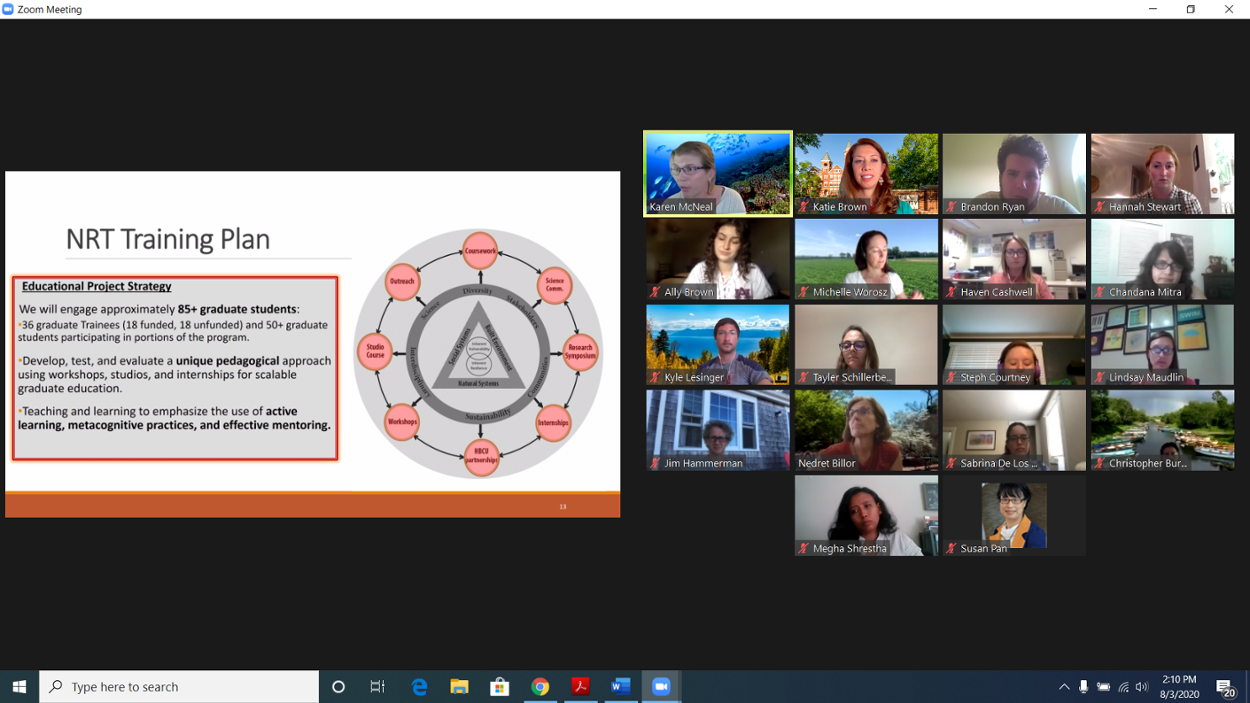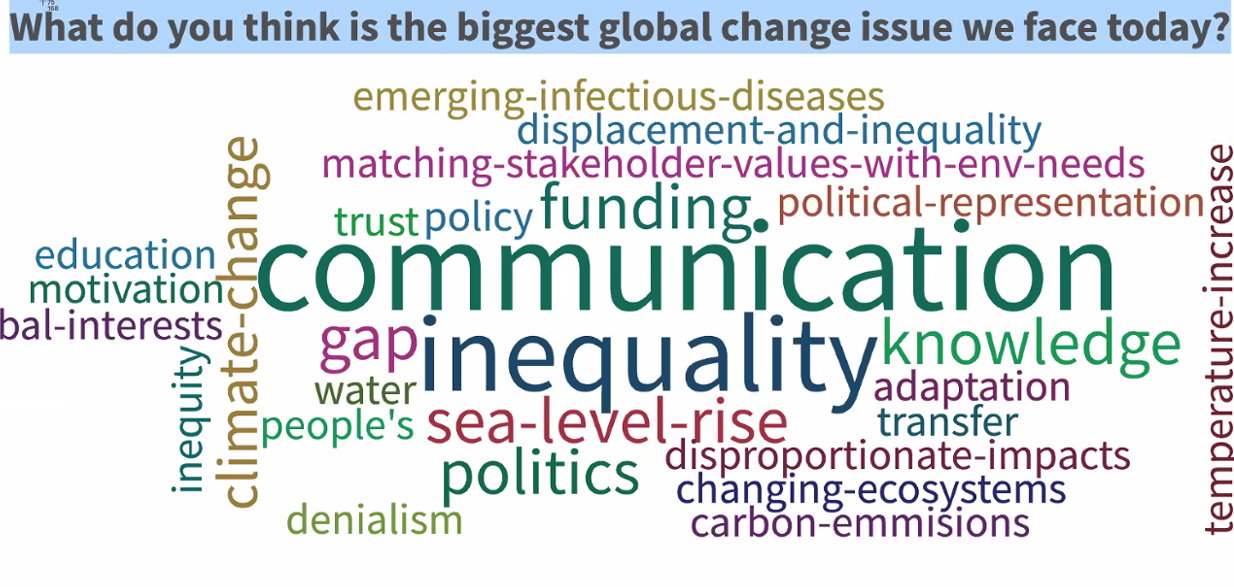COSAM News Articles 2020 August Auburn’s first NRT-award virtually connects students about climate change
Auburn’s first NRT-award virtually connects students about climate change
In September 2019, Auburn University received its first $3 million grant from the National Science Foundation Research Traineeship (NRT) to train students to impact climate resiliency in the southeastern United States (U.S).
The interdisciplinary team, which hopes to include students from the Department of Geosciences, the College of Sciences and Mathematics (COSAM); College of Agriculture’s Crop, Soil and Environmental Sciences; and Agricultural Economics and Rural Sociology; partnered with North Carolina State University’s USGS supported Southeast Climate Center Adaption Science Center.
“Our first week-long virtual immersion meeting was held from August 3 through 7,” said Katie Brown, program coordinator for the NRT project. “It was a great success!”
The Climate Adaptation and Resilience Immersion (CARI) meeting was held online through Zoom and Slack and included students from Duke University, University of Tennessee, University of Florida and University of South Carolina.
“The immersion meeting is aptly named because of the robust line-up of topics the science professional speak on and the group exercises the students preform throughout the week all focused on providing context for some of the emerging challenges in conservation and climate change impacts in the southeast,” Brown added.
Karen McNeal, professor in Auburn University’s Department of Geosciences, is the primary investigator for this grant that offers students hands-on experience with climate change including studying natural systems and man-made infrastructures.
“The meeting took many weeks of advance preparation for the new way of conducting training but it went almost seamlessly due to the dedicated professionals from AU, including our very own Katie Brown, and NC State. There were more than 27 graduate student participants and numerous speakers that joined throughout the five-day virtual meeting. Students heard from experts in climate modeling, co-production, science communication, invasive and at risk species, tribal engagement, and from numerous stakeholders that apply climate science to their everyday needs and projects. They had the opportunity to learn about each other and start the year off with the best foot forward that we could provide in these circumstances and I am excited to see all of the great things they will do in the coming years at Auburn and around the issues related to climate resilience in the southeastern U.S."
The students that participated in the virtual program had a chance to learn about climate change and connect with each other.
“Having a formal presentation and then breakout group activities allowed me to fully immerse myself in this topic, while learning about the graduate students that I attended this meeting with,” said Haven Cashwell, a second-year master’s student in geology.
Tayler Schillerberg, a second-year doctoral student in Crop, Soil and Environmental Sciences shared how the data and information presented an opportunity for new perspectives and viewpoints.
“I learned so much about how climate analyses are used for stakeholder settings, impacts of climate on species, sea-level rise, and science communication with different audiences. By being part of the intermingling cohorts in the breakout groups, gave us the opportunity to cross-communicate, share ideas and exchange different background perspectives,” Schillerberg said.
The five-year grant runs through September 2024.
“Although the conference was held online this year, it intentionally still had comradery opportunities for the participates to build up their network with virtual games, daily small group discussions, fireside chats, and virtual socials with other universities' graduate students, science professionals and past fellows,” said Brown.
Applications will be accepted starting in September 2020 through January 2021 for next year's trainees and can be accessed online at http://www.auburn.edu/cosam/climate_resilience/index.htm.
Latest Headlines
-
02/12/2025
-
02/11/2025
-
02/10/2025
-
01/30/2025
-
12/03/2024



